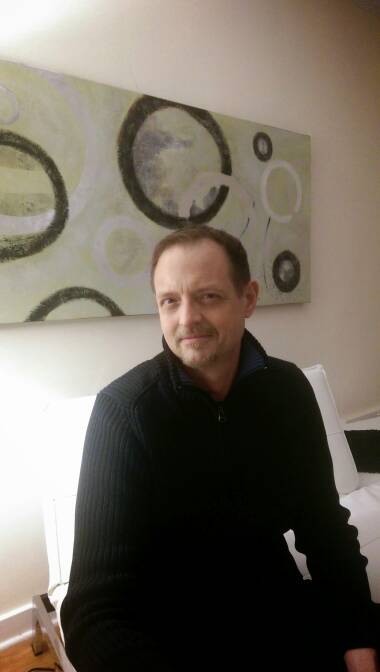Robert Edgell, SUNY Polytechnic Institute – Economic Vitality and the Arts
 The arts are the first to take any budgetary hit, but should they?
The arts are the first to take any budgetary hit, but should they?
Robert Edgell, associate professor of technology management at SUNY Polytechnic Institute, examines how the arts can help communities with more than just entertainment.
Dr. Edgell is currently an Associate Professor of Technology Management, Co-Director of the Joint Center for Creativity, Design, and Venturing, and had volunteered for one year to be the Interim Dean of the College of Business Management at SUNY Polytechnic Institute. He has been a Visiting Professor at the Swiss Business School in Zurich and has delivered research papers and lectures at Stanford University’s Law School, the University of California San Francisco’s School of Dentistry, the California College of the Arts, and the University of St. Gallen. Previously, he was an Assistant Professor at American University’s Kogod School of Business where he was named Outstanding Faculty. Also, he has taught at San Francisco State University’s College of Business.
Dr. Edgell’s scholarship agenda expands upon his deep commitment to creativity, design, innovation, governance, and diversity. He is currently researching institutional change micro-processes, design culture, collective ideation, and entrepreneurial capacity development. He has collaborated with scholars from Temple University, Stanford University, and other institutions. He has published several scholarly research articles and presented multiple conference papers. Seven research projects have been featured on National Public Radio’s Academic Minute. Recently he was a co-PI recipient of a prestigious $100,000 National Endowment for the Humanities, Humanities Connections grant for Reimagining Entrepreneurship: An Integrated Pathway for Creative and Ethical Venturing. In addition, NYSTEC recently donated $25,000 for supporting his entrepreneurial Initiatives and related research at the College of Business Management. Shortly after arriving at SUNY Poly, he launched a community-based experiential learning, research, and service program that brings InnovationChallenge New York (ICNY) events to the Upstate New York region. Since then, he has organized a total of five ICNY iterations with varied topics, students, and locations. In October of 2017, he presented his co-authored empirical quantitative research paper, Reimagining entrepreneurship: Design culture exposure as a positive mediator for entrepreneurial capacity, at the International Atlantic Economics Society’s Montreal Conference (paper currently under peer review for publication). He was awarded “Campus Connector” designation by Upstate Venture Ecosystems Awards in 2016.
Dr. Edgell received his PhD in international multicultural management (magna cum laude) from the University of St. Gallen in Switzerland. He holds an MBA from Columbia University Business School in the City of New York and a five-year Bachelor of Architecture from Kent State University, College of Architecture and Environmental Design. Through Columbia’s Chazen Institute of International Business, he studied at Erasmus University, Rotterdam School of Management in The Netherlands. He is a registered Architect and has studied at Harvard University, Graduate School of Design.
Economic Vitality and the Arts
Do the arts not only entertain us, but also make our communities more economically robust? Our research suggest that the answer is yes. The arts can catalyze economic development in three ways. They enhance communities’ network dominance, capacity for new visions, and entrepreneurial activities.
Communities rich with the arts tend to attract highly creative artistic and scientific individuals who seek intellectual stimulation from other like-minded individuals. These clusterings are referred to as “purposeful associations” which flourish in tolerant, open, and supportive cultures. These open communities usually develop more relationship links to other communities through these immigrating individuals and thus gain greater network dominance which often yields more economic exchange and vitality.
The arts have the freedom to create fictional visions of future possibilities that both reflect and shape shared social values. Often these become blueprints for channeling scientific talents. One need only think of devices such as mobile smart phones that were not that long ago only fictional props in science fiction works.
Lastly, exposure to the arts and designers’ methods may imbue individuals with the confidence and abilities needed to care about their communities, tackle complex social problems, and develop entrepreneurial ventures.
So the next time a performer makes you laugh or a piece of sculpture moves you to tears of joy, please remember all the other benefits your community or city may be gaining.


